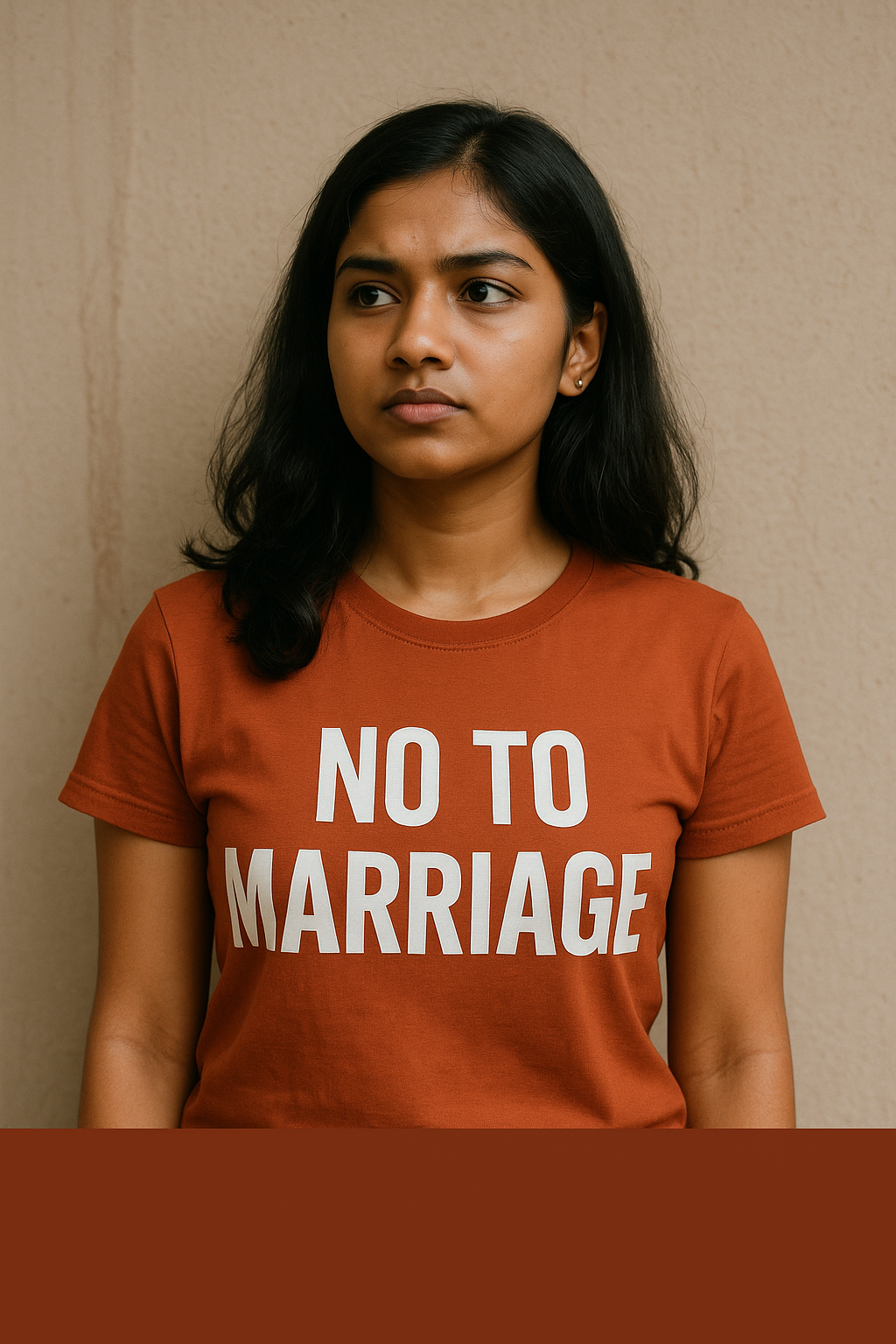Why Gen Z Indian Women Are Saying ‘No’ to Marriage — And What That Really Means

Introduction
In 2025, a quiet revolution is brewing across Indian cities and small towns alike. A growing number of Gen Z Indian women are consciously choosing to delay or opt out of marriage altogether. And it isn’t because they’re against love, family, or companionship — it’s because they are re-evaluating what marriage means in a rapidly modernizing, yet traditionally rooted, society.
According to a recent Pew Research report, the average age of marriage for Indian women has increased from 21 to nearly 25 in the last decade. Even more notably, women in metropolitan cities and Tier-1 colleges are choosing to remain single well into their 30s.
So why are Indian women, particularly Gen Z, rethinking the marriage script that once seemed non-negotiable?
Cultural Shifts and Educational Upliftment
Gen Z women are more educated, more digitally literate, and more career-oriented than any generation before them. This generation has grown up with access to the internet, feminist literature, podcasts, YouTube channels, and Instagram influencers advocating choice, freedom, and financial independence.
Where their mothers were often told to compromise, today's young women are asking: *"Why should I settle at all?"
"I don't want to be someone else's second priority after his job or parents," says Riya, a 24-year-old data analyst from Pune. "I'd rather focus on my own goals for now."
This is not rebellion. It's realignment.
The Feminist Lens: It’s Not Just Personal, It’s Political
Marriage in India has historically been a deeply patriarchal institution. Even today, many women adopt their husband's surname, move into his home, and are expected to balance full-time jobs with household duties.
For Gen Z women influenced by global feminist ideas, this sounds less like partnership and more like sacrificial assimilation.
They're asking:
- Will I lose my identity?
- Will I be expected to give up my career?
- Will I have equal decision-making power?
And increasingly, if the answers are unclear, they're choosing to wait. Or walk away entirely.
Prioritizing Mental Health and Self-Growth
The post-pandemic world has made mental wellness a priority. Gen Z women are exploring therapy, journaling, fitness, and spirituality. They are healing intergenerational trauma and setting boundaries.
For many, marriage feels like an emotional risk they're not yet prepared for.
"I watched my mother give up everything and still not be appreciated," shares Isha, 26, a PhD student. "I don't want to repeat that cycle."
Self-growth isn't selfish. It's survival.
Influencer Culture and Representation
Representation matters. Indian social media is now populated with creators like Srishti Dixit, Seema Anand, and Kusha Kapila who normalize singlehood, dating, and being unapologetically yourself.
Netflix series like "Masaba Masaba" or "Bombay Begums" portray single Indian women not as lonely or flawed, but as powerful, complex, and complete.
These images are reshaping what young women aspire to. Marriage is no longer the default ending.
Is It Just Urban Elite Feminism?
Not entirely.
Even in Tier-2 cities like Jaipur, Indore, and Nagpur, there's growing resistance. Women are negotiating marriage terms, asking for compatibility, and refusing to marry until they are emotionally and financially ready.
This isn’t rejection of marriage, but a redefinition.
Global Trends: How India Compares
Globally, women are marrying later or not at all. In the U.S., the median age of marriage has risen to 30. In Japan, singlehood is increasingly common. Urban Indian women are following similar trajectories, albeit with stronger familial pressures.
Still, the trend is clear: education, career, and autonomy are outweighing societal timelines.
What Does This Mean for India’s Future?
- Marriage markets and matchmaking services must evolve.
- Families must allow women the space to decide their own timelines.
- Policymakers must address the needs of single women in taxation, housing, and safety.
This shift also opens new conversations around live-in relationships, adoption by single women, and queer partnerships — all of which are gaining gradual acceptance.
Conclusion: A Choice, Not a Compulsion
For Gen Z Indian women in 2025, saying 'no' to marriage is not about hatred or rebellion. It's about agency. It’s about redefining success and fulfillment.
Would you choose freedom over tradition? Let’s talk.
Join the conversation. Share your story or tag a woman who's carving her own path.
Because empowerment begins with choice.



